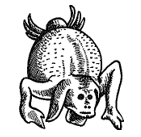In his last novel, The Orchids, Mr. Cook wrote about nazis. His latest production, Tabernacle, concerns itself with a group of people he evidently finds just as awful: the Mormons. A resident of Cape Cod, Mr. Cook obviously hasn’t spent much more time with Mormons than he had with nazis, so his portrayal of them is even more superficial and inaccurate. He does know that Mormons once denied ordination to blacks, and he’s about as horrified by that as by the Holocaust. He further knows that the Latter-day Saint Church takes doctrine and institutional discipline seriously, even excommunicating on occasion, and he finds that about as depressing as what has resulted from Mein Kampf as a message and from Auschwitz as its materialization.
Were Mr. Cook a devout Baptist or Catholic, we might suppose that he is opposed to the specific teachings of Joseph Smith and his successors. But his quarrel with the Mormon prophets is actually a repudiation of faith itself. Like the protesters who frequently show up bearing swastikas when conservative leaders, secular or religious, are speaking, Mr. Cook evidently suspects that all order–moral and existential–is protofascist. His protagonist–a New York detective who has moved to Utah–believes only in “his life, all he had, and beyond which, he knew, there was nothing.” This skeptical cop dislikes “the wholesome cleanliness” of Salt Lake City and longs for “a s[···] New York neighborhood where everybody shot up, skinned their neighbor, and worked the streets like their own private crap game.” Fighting his way through rampant fanaticism and official hypocrisy, he proves his antitranscendent goodness by being killed in the Mormon Tabernacle by the murderous Brigham Young University professor he’s been trying to stop. With this revelationary conclusion, Mr. Cook, according to the dustcover, has reached “the dark heart of the Mormon faith.” The book cautiously avoids speaking about any darkness of mind–mind you.

Leave a Reply